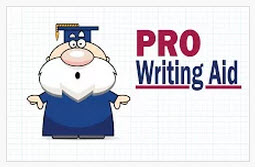Before reading the below, check out my first entry on this topic: Writing Resources — Pre-drafting
Okay, your manuscript outline is in your hands, and you’re ready to begin the wonderfully tortuous process of writing your first book! So you write a sentence. Then that sentence becomes ten sentences. Before you know it, a chapter is finished!
But is it really finished? I mean, you’ve read it several times, and it seems to read well…yet how can you be sure? This question is especially relevant for writers like me, who did not obtain an MFA. For example, there may be significant mechanical issues with your writing that are a cinch to correct, if you do so early. And luckily, there tools that will help you identify significant problems with your writing.
THE “SHARE YOUR WORK” SECTION OF ABSOLUTEWRITE.COM
I would say I present this recommendation with a grain of salt, but a “grain” is far too insubstantial. Let’s just say you should approach the “Share Your Work” section of Absolute Write with a boulder of salt.
Here is the problem with SYW, and AW in general—there is no guarantee that the person critiquing your work knows what he or she is talking about. Often, these inexperienced writers cling to certain clichés they’ve learned, such as “don’t use –ly words!” And unfortunately, the criticisms can be overly harsh. For instance, I shared a section of FATE’S PAST on the forum, and one poster told me it read “like a first draft.” I had just finished wiping away my tears when, two weeks later, a publisher offered me a contract.
With all that in mind, brilliance can be gleamed from SYW if you approach it in an educated way with thick skin. Namely, many professional writers post on AW and are willing to help the aspiring masses. And oddly, the experienced writers seem to know how to balance positive with the negative.
It is often easy to figure out who you should really listen to as they will have high post counts and their signature blocks may contain links to their published works; other times, however, the author is a bit more subtle. But hang out in AW enough, and you’ll learn the who’s who.
A few mechanical notes: AW will not let you post on SYW until you have posted fifty times; also, they have blocked people from SYW who signed up for AW and rushed through their first fifty posts to reach SYW. I’d suggest allowing the posts to come naturally—sign up for an AW account, post an introductory message in the New Members section, say “hello” to new posters, and respond to a few posts in the Novels sub-forum; before you know it, you’ll have sailed past your fifth post, and you’ll have a better understanding of the AW world and those who inhabit it.
I’m all about free tools that help improve your writing, and Pro Writing Aid is one of the best. As I said before, I do not have an academic background in writing, so I embrace any resource that may help me identify issues I’m not seeing. I can proofread a manuscript a million times, but if I’m unfamiliar with a certain editing rule, all that proofreading will be for naught.
And that’s where Pro Writing Aid comes in. First, go to this website. Then sign-up for a free account. Once you’re registered, you are able to post sections of your writing into the text box, and after clicking the “Improve My Writing” button, the software will give you an editing breakdown of possible issues. For example, the following are a few of my favorite features of Pro Writing Aid…
- It will analyze your sentence length and specify if your sentences are generally too long or too short.
- The “writing style” check looks for passive verbs, hidden verbs, and repeated sentence starts, all of which can bog down your writing.
- A “sticky sentences” check will analyze whether your writing has too many “glue” words that can slow your reader down. Glue words are the 200 most used words in the English language.
- Pro Writing Aid will analyze your diction and give suggestions of simpler ways to present your ideas.
- The overused words function will highlight where you have utilized certain words too many times.
There are many more helpful functions, but the above examples illustrate certain problems that are not easily recognizable with a simple proofreading.
Another great feature of Pro Writing Aid is its compatibility with Word. The Word plugin is excellent; but, unless you purchase a subscription, you can only access the plugin for fourteen days. My advice would be to use the free website tool and then download the plugin when you are doing your final proofread.
Or, like me, you can pay for the service. Admittedly—and perhaps obviously—I am a Pro Writing Aid fanboy, so I purchased the “Lifetime Premium” option, which allows me to download the plugin forever on an unlimited number of computers.
You can find out more about Pro Writing Aid’s premium options here: https://prowritingaid.com/en/App/Purchase.
That’s it for now! Thanks for reading, and stay tuned for my next post, in which I will describe three more resources that will help you draft an award winning manuscript!



